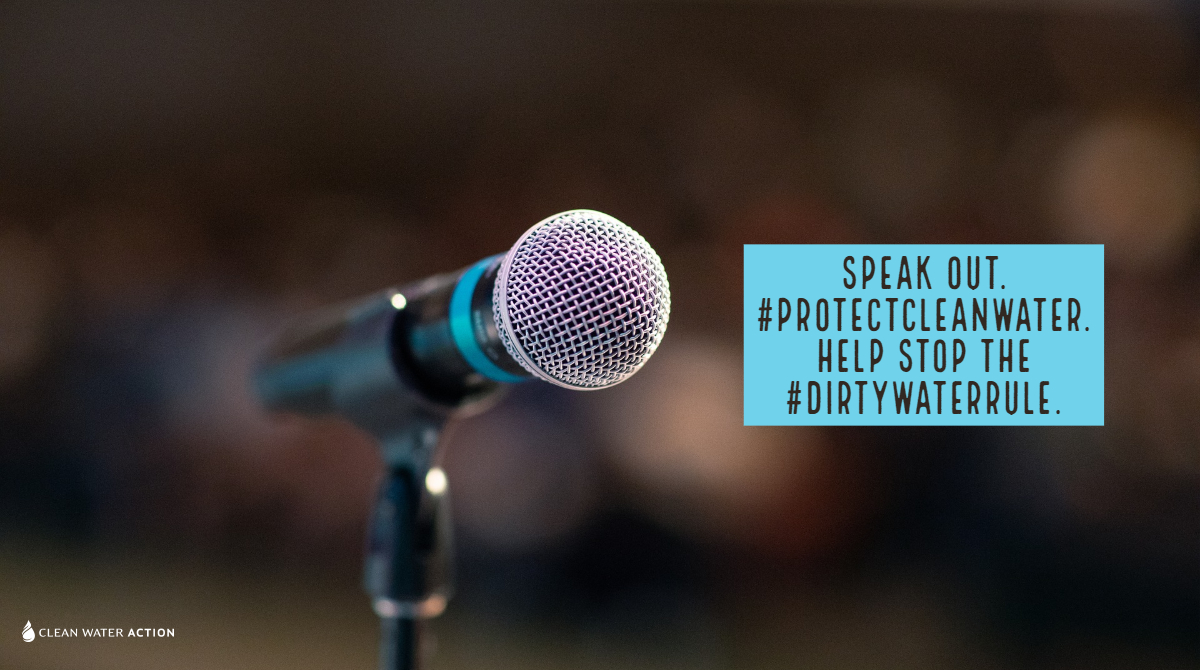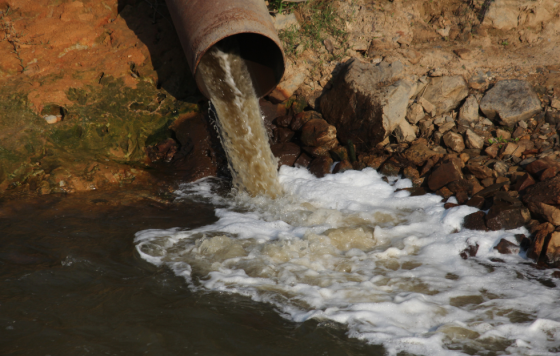
I’m in Kansas City this week, and it’s not just for BBQ and jazz and the Negro League Baseball Museum (though those are nice perks). I’m here because the Environmental Protection Agency (EPA)is holding the only public hearing on its scheme to strip Clean Water Act protections from millions of miles of streams and more than half of the nation’s wetlands. On top of only providing 60 days for the public to comment on the most aggressive assault on safeguards for our water in the history of the Clean Water Act, it’s almost like EPA doesn’t actually want to hear from the public about the Dirty Water Rule.
OK, it’s not “almost”. EPA doesn’t want to hear from the public. One public hearing and 60 days to comment is the bare minimum. It complies with the letter of the law – that the public has a right to comment on agency proposals – but it’s a big swing and a miss on the spirit of the law. In 2014, when EPA was working on the Clean Water Rule (which the Dirty Water Rule would replace), it gave the public more than 200 days to comment and held over 400 meetings with various stakeholder groups. The Obama administration’s EPA welcomed comment in 2014 because agency officials knew that our laws, our government, our democracy are stronger when the public is actively involved.
The question is: What is Administrator Wheeler afraid of?
It might have something to do with the shaky legal footing that the Dirty Water Rule is on, relying on a Supreme Court opinion that was rejected by the previous two administrations. Or it might be that this scheme completely ignores science and what we know about the connectivity of our water bodies (check out this report for more on that). Or it might be that it flies in the face of public opinion about the need to protect our water. Poll after poll tells us that Americans, across party and ideological lines, want to see the federal government do more, not less to safeguard our water and health. It’s incredibly clear, unlike the Dirty Water Rule, which would only bring confusion, harm small businesses, and put our health at risk in order to benefit corporate special interests.
The good news: EPA’s plan to avoid public scrutiny over the Dirty Water Rule isn’t working. Tens of thousands of people have already submitted comments in opposition to the proposal. Dozens of groups, states, and coalitions have asked EPA for more time to comment. And hundreds of activists and advocates came to Kansas City to tell the agency, in person, that the Dirty Water Rule is the last thing we need for our water and health.
People came from Seattle, from Florida, Colorado, Nebraska Pennsylvania, Montana, Kansas, Missouri, Texas, and many other states. They came to testify because the Dirty Water Rule isn’t some abstract federal regulation, it will impact kids, families, small businesses, and communities (not to mention wildlife). You can’t wipe out protections for the streams that feed drinking water sources or the wetlands that filter and recharge ground water, and also safeguard cities and towns by absorbing floodwaters, and not put people at risk. EPA’s Dirty Water Rule is dangerous and we have to stop it. And we will.
Here’s just a sampling of what was said in Kansas City this week.
“Loss of protections of these critical waterways would have grave consequences for fish and fisheries and would have far-reaching implications for fish, wildlife and their habitats, as well as economies dependent on those systems.” – Drue Winters, American Fisheries Society
“The best line of defense to protect our nation’s water quality and the health of our kids is to prevent harmful contaminants, toxins and other pollution from entering our groundwater, rivers, lakes, streams and bays in the first place. This should be a primary consideration when developing regulations and other programs involving upstream activities that could negatively impact downstream drinking water sources. When this doesn’t happen, we need to speak up. That’s what I am doing today. Please fight to protect our vital water resources for our children and grandchildren” – Dr.Tim Fete from Columbia Missouri
“I'd like to start by asking to close your eyes and think of water. Maybe you are playing in puddles, or tasting a cold glass of water on a hot day. Or it's swimming in a river or watering fields. I want us to remember that we all have memories of water. That it touches us all.” – Ean Thomas Tafoya from the Colorado Latino Forum
“EPA must weigh the impacts of the proposed revision of the WOTUS rule on amphibian populations nationwide. As both prey and predator, they are integral to maintaining the diversity of aquatic ecosystems. Amphibians are early indicators of the deterioration of freshwater habitats and an important bellwether of global threats.” -- Elaine Giessel, Kansas Master Naturalist
“A strong Clean Water Act IS pro business. It is good for the economy and good for jobs. While removing protections for seasonal streams and wetlands may benefit a handful of businesses, it will significantly damage many, many others including ours.” – Brian McGeehan, Montana Angler
There many others who shared their stories. It was incredibly powerful. Have you shared your story yet? Make sure you do. The comment period closes on April 15. EPA needs to hear from the people who the Dirty Water Rule will impact (that’s all of us). The agency needs to know just how unpopular and unacceptable its dangerous scheme is.


